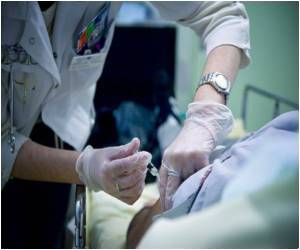
The two trials found that 70 percent of aneurysms occurred in post-menopausal women with the mean age of 52 at a time of life coinciding with a severe drop in estrogen levels.
"By understanding the potential link between low levels of estrogen and aneurysms, we can focus our areas of study with the hope of providing women who are at risk for brain aneurysms with preventative therapies," said Chen.
Researchers at Rush also studied a group of 60 women with both unruptured and ruptured aneurysms.
Sixty-five percent of the cases were unruptured and 35 percent were cases where women had ruptured aneurysms. The ages of the women who participated in the study ranged from 31-80.
Both groups were screened with questions related to their gynecologic history and the use of estrogen modifying medications.
Advertisement
Also, the rate of hormone replacement therapy usage was 23.7 percent for the case group and 44.8 percent for the control group.
Advertisement
"These differences in the usage of estrogen modifying agents qualify as statistically significant and indicate that women with brain aneurysms use oral contraceptives and hormone replacement therapy less frequently than the general population," said Chen.
"It is reasonable to conclude that the data results support our hypothesis that drops in estrogen that occur in menstruation and particularly at menopause may explain why cerebral aneurysms are more frequently found in women, particularly at menopause," he added.
The findings were presented in the 7th annual meeting of the Society of Neurointerventional Surgery (SNIS).
Source-ANI














